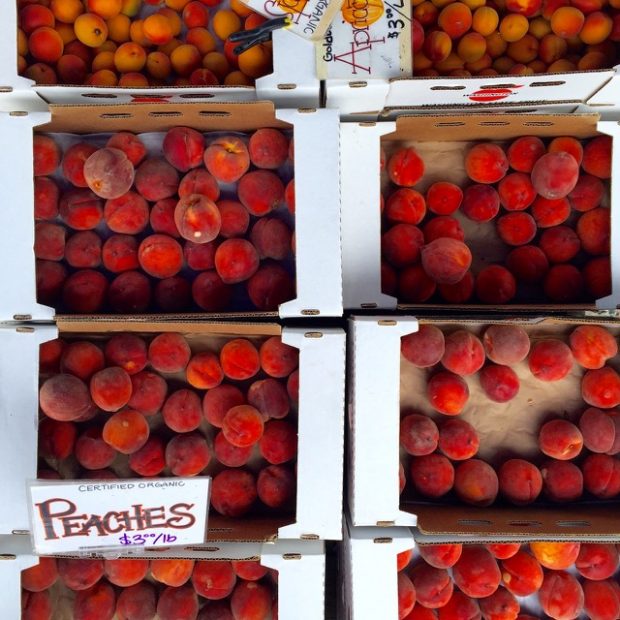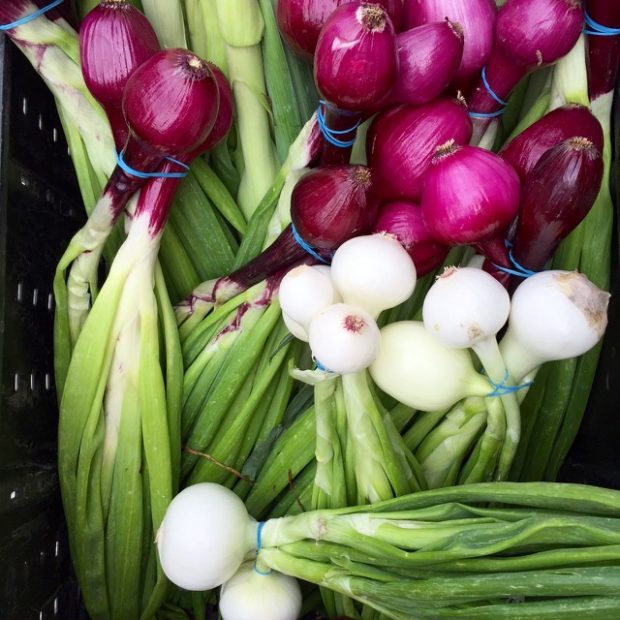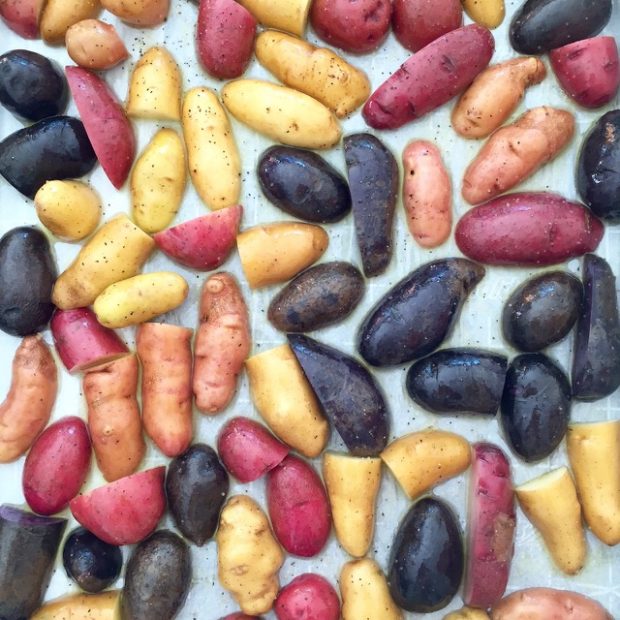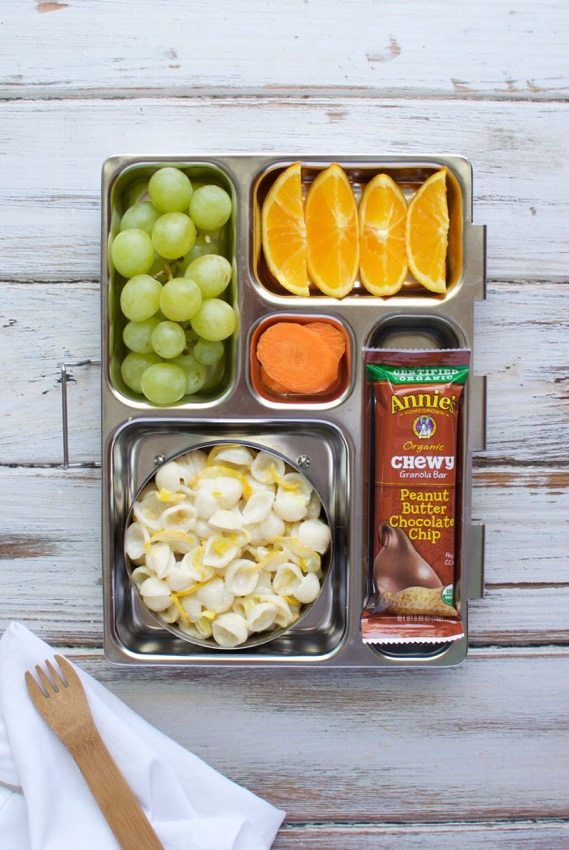If you eat, you’re going to consume a certain amount of pesticides. That’s just a reality of living in this day and age.
But luckily, there are some easy ways to reduce your and your family’s pesticide exposure – which can improve your health both in the short and long term. And it all starts with buying organic.
In an ideal world, we’d all buy organic food and products 100% of the time. This would not only help reduce our own exposure to chemicals, but would improve the health of our planet, make farming practices more sustainable, and ensure a safer food system for future generations. But since most families (including my own) are on a budget and don’t have unlimited access, it’s not always possible to buy organic.
That’s where The Dirty Dozen and Clean Fifteen lists come in handy. These lists – produced by the Environmental Working Group – help guide us in how to best spend our food dollars. Fruits and vegetables found on “The Dirty Dozen” list have the highest pesticide residues (even after washing) and those on “The Clean Fifteen” list have the lowest. So if you have a limited food budget, focus your organic purchases on produce listed on The Dirty Dozen. This will have the biggest impact on your family’s health.
| THE DIRTY DOZEN | THE CLEAN FIFTEEN |
| Strawberries | Avocados |
| Apples | Sweet Corn |
| Nectarines | Pineapples |
| Peaches | Cabbage |
| Celery | Frozen Sweet Peas |
| Grapes | Onions |
| Cherries | Asparagus |
| Spinach | Mangoes |
| Tomatoes | Papayas |
| Bell Peppers | Kiwi |
| Cherry Tomatoes | Eggplant |
| Cucumbers | Honeydew Melon |
| + Hot Peppers | Grapefruit |
| + Kale / Collard Greens | Cantaloupe |
| Cauliflower |
[Note: Hot Peppers and Kale/Collard Greens contain particularly toxic pesticides, so they are added onto The Dirty Dozen even though the residue amounts may not be as much as the rest of the produce on that list].
If budget is not a big concern for you, I highly recommend buying organic (even produce on The Clean Fifteen) whenever possible. Because even though the pesticide residues may not be high on some fruits & veggies, the pesticide use in farming these may still be high, which has consequences on the environment an on the health of farmers and farm workers. Buying organic is also like “voting with your dollar,” so by doing so you show support for a better food system.









2 Comments
Royena
September 14, 2016 at 9:29 amWhile you have a list of both “dirty and clean” why don’t you have something that explains how to clean these foods. I for one am sick and tired of all the news about how bad food is for you. I know people who are nearly having nervous breakdowns over what to feed their families. I grew up on a farm where we ate everything my Dad grew including meat, poultry etc. It was during a time that DDT was used to spray the crops. My brothers and sister and I are healthy as older adults….my Mom washed everything and we ate it….not sick, never sick from anything off of our farm which by your standards would have been poisonous.
Amelia Winslow
September 29, 2016 at 1:30 pmHi Royena. I hear what you’re saying about all the bad news about food. It does get overwhelming. But the reality is that our government is not protecting us like it should be. Agricultural policies motivate companies to produce cheaper, lower quality food in unsustainable ways, which in turn affects our health and that of the planet. Most people (including me) don’t have the bandwidth to be vigilant about every single food group or every single purchase. But we can learn a little something from most news stories/research findings, and put these to use in our purchases when possible.
As far as your family goes, I’m glad to hear you’ve all enjoyed good health throughout the years. However, this example does not prove anything. Risk is calculated on a population-wide basis, not individual basis, and research absolutely links pesticides (DDT and beyond) to adverse health conditions including cancer. It’s about percentages, not individual experiences.